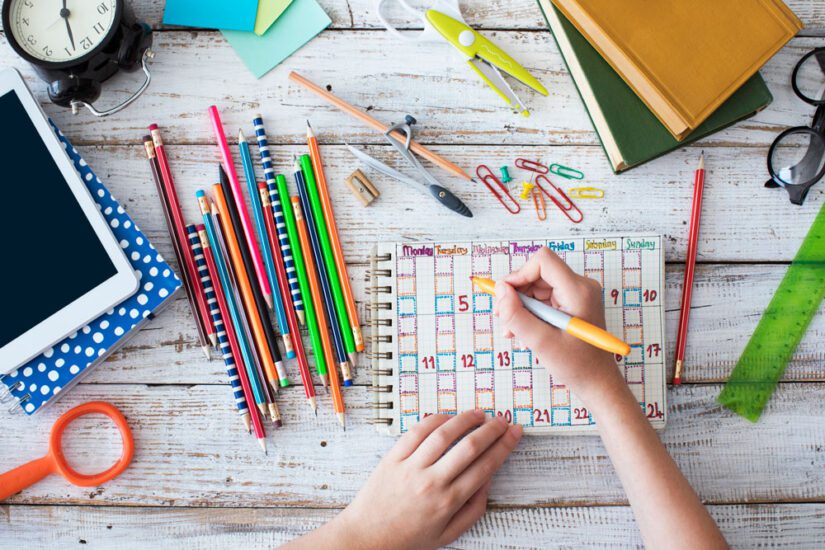Students are often unsure of the classroom materials they will require during tutoring sessions. Here’s our expert guide on what to bring to your tutoring sessions!
1. For younger students, keep it simple.
Our best recommendation for younger students? Keep an organized backpack! Younger students generally don’t require specialized materials for their assignments (like graphing calculators or heavy textbooks). As a result, there’s a fairly high chance that everything a younger student needs for a tutoring session is self-contained in their backpack – provided, of course, their backpack is neat and organized!
We always recommend students pack up their materials when not in use, as this is one of the best ways to avoid misplaced homework assignments.
2. For older students, keep it specific.
Students attending middle and high school are likely to require more specialized materials when tackling homework assignments. As a few examples, here are some common items students often forget to bring to tutoring sessions:
- Laptops or tablets for typing documents or accessing the school portal/apps
- Subject-specific textbooks or assigned reading materials
- Specialized electronic devices like graphing calculators
In most cases, these situations can be avoided by keeping materials in order. Tutor Doctor has some great tips on how to get organized at school! We recommend students take a detailed inventory of the items they will need prior to the start of their tutoring session.
Another common issue with older students is not knowing what they need to work on first. This is actually a bigger problem than most realize, as tutors generally only see students on a weekly (or even bi-weekly) basis. As a result, it’s primarily up to the student (or the student’s family) to communicate their needs on a regular basis – whether it’s with general concerns, classroom topics, or specific assignments.
Our best recommendation is for students to create a planner that works for them! Creating a priority management system will help students to identify their most pressing assignments and responsibilities effectively.
3. A learning mindset.
This may sound a bit silly, but it may be the most important item on this list! Students should bring their “A game” to tutoring sessions – meaning they should be ready to work, focused, and free of distractions.
Fortunately, this is an area where parents can have a strong influence – simply try your best to ensure your child is energized and has a quiet place to work. We recommend getting materials prepared prior to starting a session, along with providing a healthy snack!
Here are a few scenarios students should try to avoid:
- Eating food during tutoring sessions
- Waking up from a nap right before the session starts
- Having materials strewn around the house
- Television or noisy background distractions
Not only will these common situations negatively affect the productivity of your student’s sessions, but just as importantly – they waste time. If a student needs to spend 15 minutes preparing their materials at the start of every session, this time starts to add up quickly! After only four sessions, this equates to an hour of time that could have been spent working on assignments.
A good tutor can help students implement key organization strategies! Find a tutor near you.


